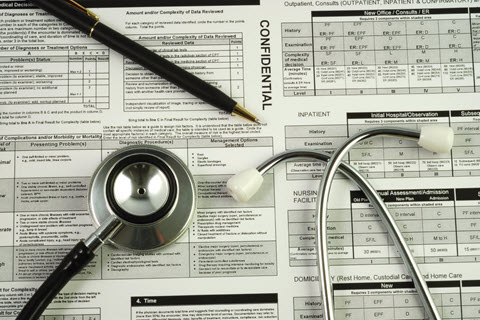The 2023 proposed rule brings some good news and some possible bad news for urology practices. Actions everyone can get behind include the Feds aiming to further advance health equity and expanding access to top-notch comprehensive healthcare for all. Here are three more areas of 2023 Medicare Physician Fee Schedule (MPFS) proposed rule to review.
1. Anticipate More E/M Services Updates
To better align with previous changes made to outpatient/office evaluation and management (E/M) services codes, the Centers for Medicare & Medicaid Services (CMS) proposes to push forward with AMA CPT® Editorial Panel-approved revisions to coding and guidelines for “Other E/M visits.”
“Similar to the approach we finalized in the CY 2021 PFS final rule for office/outpatient E/M visit coding and documentation, we are proposing to adopt most of these changes in coding and documentation for Other E/M visits (which include hospital inpatient, hospital observation, emergency department, nursing facility, home or residence services, and cognitive impairment assessment) effective January 1, 2023,” CMS says in a fact sheet on the rule.
In a nutshell, the changes that CMS plans to accept for “Other E/M visits” include adopting new code descriptors/ definitions; using interpretive guideline revisions for levels of medical decision making (MDM); offering time or MDM as an option to choose code level; and nixing history and exam to determine code level, the proposed rule indicates.

2. Know Telehealth Services Policymaking Continues to Evolve
First, CMS proposes to extend coverage of the temporary codes it didn’t add to its Medicare telehealth services list under Categories 1, 2, or 3 during the public health emergency (PHE), until 151 days after the PHE ends, the proposed rule indicates.
Plus, CMS proposes to add 54 codes to Category 3 of the Medicare telehealth services list. Remember, however, that the agency had originally earmarked the Category 3 codes to “expire at the end of the year in which the PHE ends, but CMS extended coverage of those codes through December 31, 2023,” remind attorneys Rachel B. Goodman, Nathaniel M. Lacktman, and Thomas B. Ferrante with Foley & Lardner LLP.
“In this year’s proposed PFS rule, CMS declined any further extension, so all Category 3 codes will expire at the end of 2023. In the event the PHE extends well into 2023, CMS said it will consider a further extension of the Category 3 codes at that time,” explain Goodman, Lacktman, and Ferrante in online legal analysis.
CMS aims to implement telehealth provisions that were outlined in the Consolidated Appropriations Act, 2022, too — and prepare Medicare clinicians for a post-COVID landscape.
“Of note is CMS’ request for comments on what types of services could be provided under direct supervision with virtual availability of the supervising practitioner,” note attorneys Carrie Nixon, Rebecca Gwilt, Kaitlyn O’Connor, and Casey Papp with Nixon Gilt Law in online legal analysis. “Much real estate in the 2023 Proposed Rule is devoted to preparing providers for the eventual end of the PHE, and how this will impact billing and reimbursement, which clearly signals that the end is near if Congress doesn’t set up and take action,” caution the Nixon Gilt attorneys.
3. Expect Delays on Split/Shared Policy Ramp-up
In the CY 2022 rule, CMS planned to implement its split/ shared policy that whoever provides the “substantive portion of the visit” bills for the services — whether it’s the physician or the nonphysician practitioner (NPP). The agency intended for the new definition of substantive portion to cover “more than half of the total time” to also go live in CY 2023, but instead have opted to push the start date for the policy update to CY 2024.
For CY 2023, “clinicians who furnish split (or shared) visits will continue to have a choice of history, physical exam, or medical decision making, or more than half of the total practitioner time spent to define the substantive portion, instead of using total time to determine the substantive portion,” CMS proposes.
